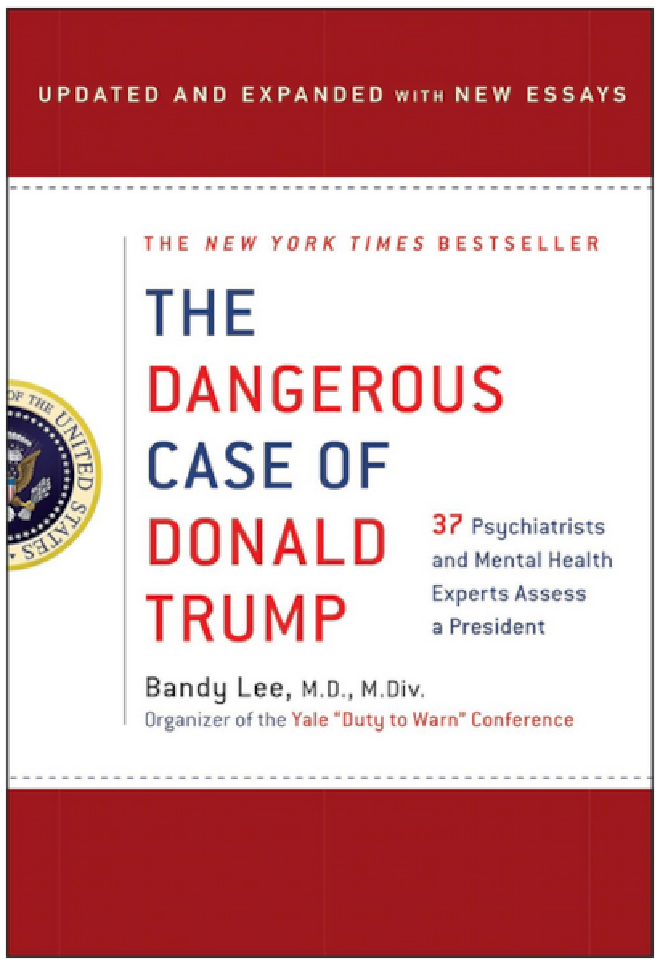August 26–31, 2024
Will Trump’s personality be his undoing? #
We want strong, self-confident leaders.
We are not surprised by the vanity of politicians. We tolerate it.
There are limits, however, to our tolerance of extreme vanity or narcissism.
Kamala Harris, Michelle Obama, and Barack Obama, along with other Democratic National Convention speakers, depicted Trump as a self-centered narcissist focused on lining his own pockets, with little interest in helping the American people.
Bill Clinton, in his convention speech, urged us to count the “I"s rather than the lies in Trump’s communications.
The psychological literature identifies differences between the narcissistic personality style and narcissistic personality disorder. Narcissism as a personality disorder can disqualify a candidate for public office, especially if it is malignant narcissism.
Kamala Harris plans to participate in a presidential debate on September 10, 2024. If Trump participates in a debate, his self-proclaimed superiority of intellect and psychological strength will be called into question when he faces Harris, an accomplished prosecutor. His personality will be on full display.
Recall Brian Tyler Cohen’s interview with Democratic Representative Jamie Raskin. Cohen asked, “Do you think Donald Trump has met his match . . . as a tough guy?”
Raskin responded, “I don’t think it. I know it because the emperor has got no clothes. And that’s always a crucial moment for the unraveling of the dictator, when it can be demonstrated that they’re just fundamentally ridiculous and insecure, and, you know, narcissistic, which is what Donald Trump is. So, he’s going to go down hard, and he’s going to have the well-deserved condemnation and ridicule of the country for what he is trying to do to us again.”
Will Trump’s personality be his undoing? We may be able to answer this question by counting both the “I"s and lies in Trump’s debate performance.
Is Trump’s narcissism a personality style or personality disorder? Consider this table adapted from Sperry (2003, page 153):
| Narcissistic Personality Style | Narcissistic Personality Disorder |
|---|---|
| Although emotionally vulnerable to negative assessments and feelings of others, can handle these with style and grace | Reacts to criticism with feelings of rage, stress, or humiliation (even if not expressed) |
| Shrewd in dealing with others, utilizing the strengths and advantages of others to achieve goals | Interpersonally exploitive, taking advantage of others to achieve goals |
| Can energetically sell ideas and projects | Has grandiose sense of self-importance |
| An able competitor who loves getting to the top and staying there | Believes problems are unique and understood only by other special people |
| Can visualize self as the best or most accomplished in a field | Preoccupied by fantasies of unlimited success, power, brilliance, beauty, or love |
| Belief in self, abilities, and uniqueness, but does not demand special treatment or privilege | Has a sense of entitlement and unreasonable expectations of especially favorable treatment |
| Accepts accomplishments, praise, and admiration gracefully and with self-possession | Requires constant attention and admiration |
| Possesses a keen awareness of thoughts and feelings, and has some awareness of thoughts and feelings of others | Lack of empathy, inability to recognize and experience how others feel |
| Expect to be treated well by others | Preoccupied with feelings of envy |
Trump’s penchant for lies, fantasy, and fabrication, and his denial and distortion of reality, indicate that his narcissism is more than merely style. It is a personality disorder.
The nature of Trump’s narcissism is revealed by examining his lies. Do Trump’s lies suggest a misunderstanding, distrust, and/or hatred of others? Are his lies an attempt to justify violence against others? In other words, does Trump exhibit malignant narcissism, a combination of narcissism and antisocial personality disorders?
Numerous mental health professionals have warned us about Trump’s narcissism and antisocial personality disorders, as well as his pathological lying and delusional disorder (Lee 2019). Watch The Weekend Show with Anthony Davis’s interview with Bandy Lee, who sees fascism as mental illness in politics. See additional postings of Bandy Lee and the World Mental Health Coalition.
Trump’s psychological disorders are exasperated by age-associated cognitive impairment or dementia.
Will Trump’s psychological disorders and cognitive impairment lead to his losing the 2024 presidential election? Time will tell.
References on Personality Disorders and Trump #

- Misc. 2024. health: Understanding Dementia (special edition). New York: Dotdash Meredith Premium Publishing.
- Lee, Bandy (ed.) 2019. The Dangerous Case of Donald Trump: 37 Psychiatrists and Mental Health Experts Assess a President (expanded, updated edition). New York: St. Martin’s Press. [ISBN-13: 978-1-250-21286-3] Amazon Associates Paid Link.
- Lee, Bandy. 2020. Profile of a Nation: Trump’s Mind, America’s Soul. World Mental Health Coalition, Inc. [ISBN-13: 978-1735553740]
- Lee, Bandy. 2024. The Psychology of Trump Contagion: An Existential Threat to American Democracy and All Humankind (Kindle Edition). World Mental Health Coalition, Inc.
- Millon, Theodore (with Roger D. Davis, and Contributing Associates). 1996. Disorders of Personality DSM-IV™ and Beyond (second edition). New York: Wiley. [ISBN-10: 0-471-01186-X]
- Millon, Theodore, Seth Grossman, Carrie Millon, Sarah Meagher, and Rowena Ramnath. 2004. Personality Disorders in Modern Life (second edition). New York: Wiley. [ISBN-10: 0-471-23734-5]
- Sperry, Len. 2003. Handbook of Diagnosis and Treatment of DSM-IV-TR Personality Disorders (second edition). New York: Routledge/Taylor & Francis Group. [ISBN-13: 978-0-415-93569-2]
The Virtual Tout® listens to all sides of the political debate. We post research results, election forecasts, and political commentary on this site.
See the log of Blog postings.
The most recent news is on the home page.